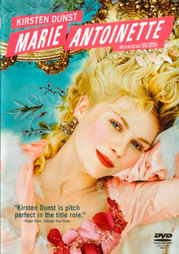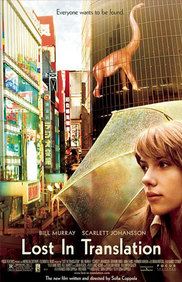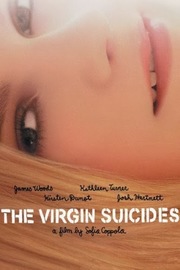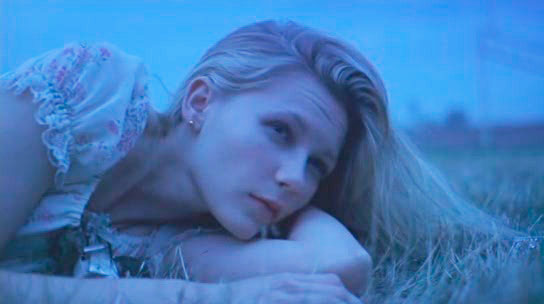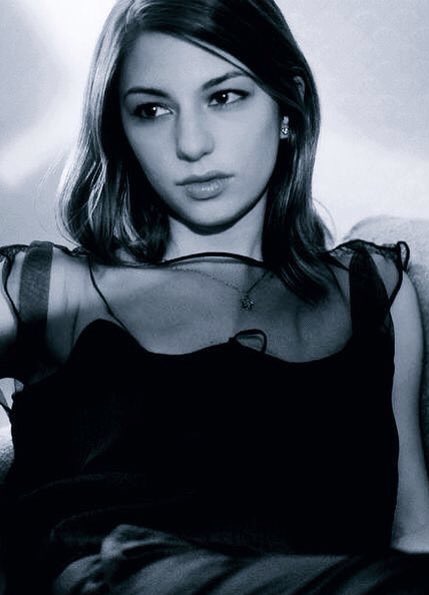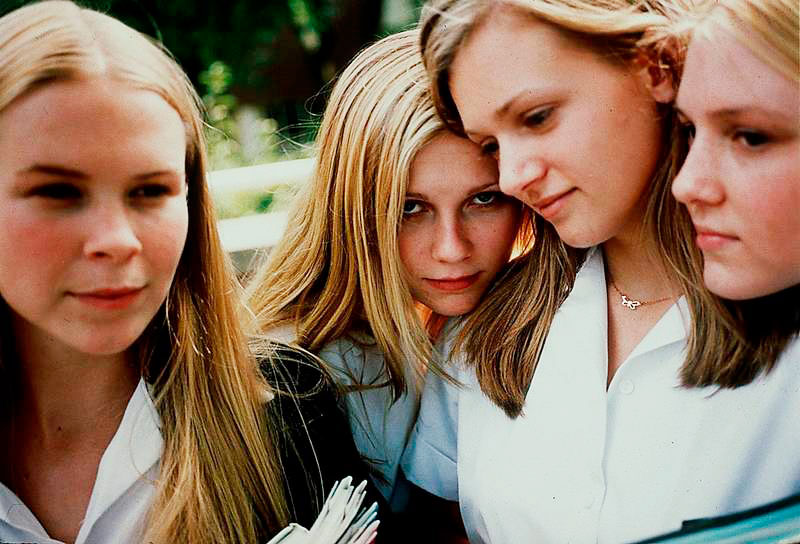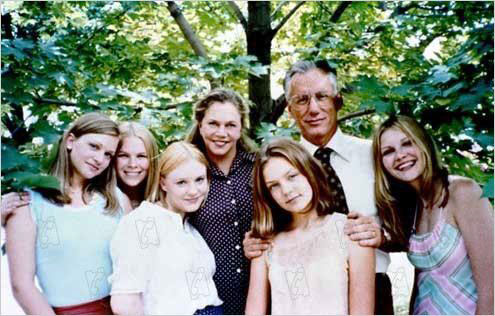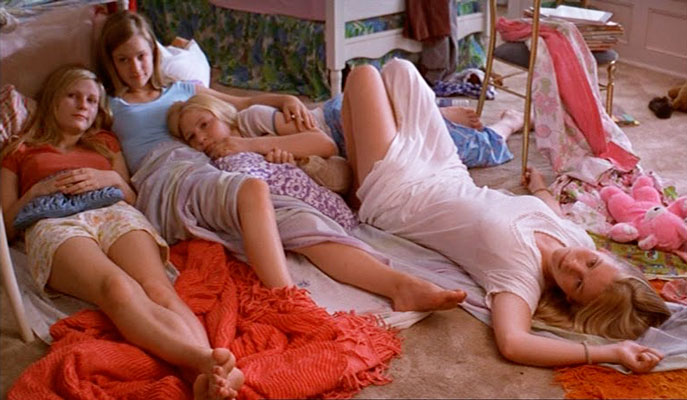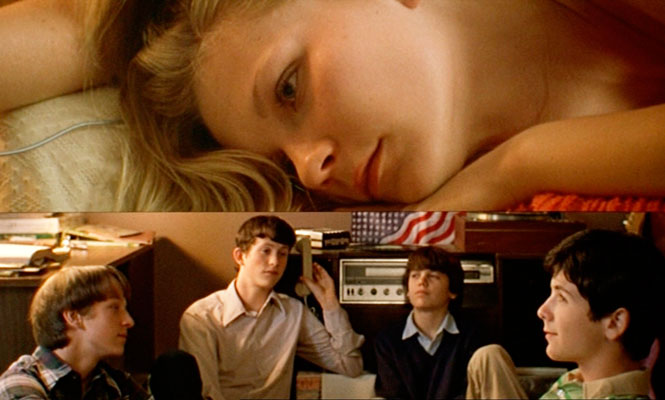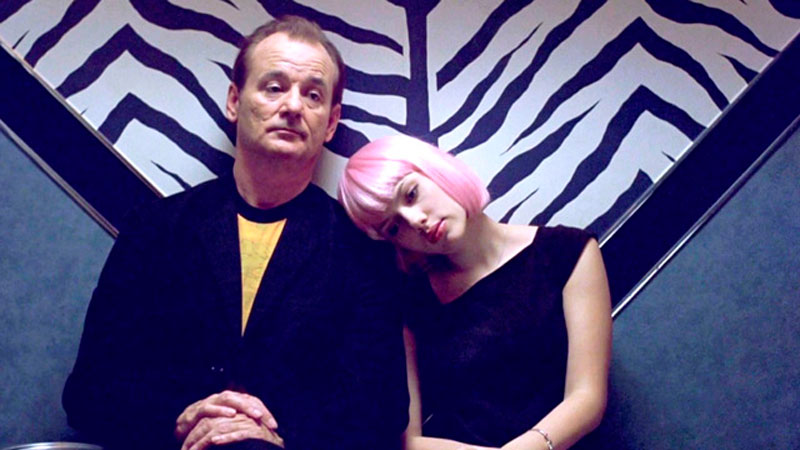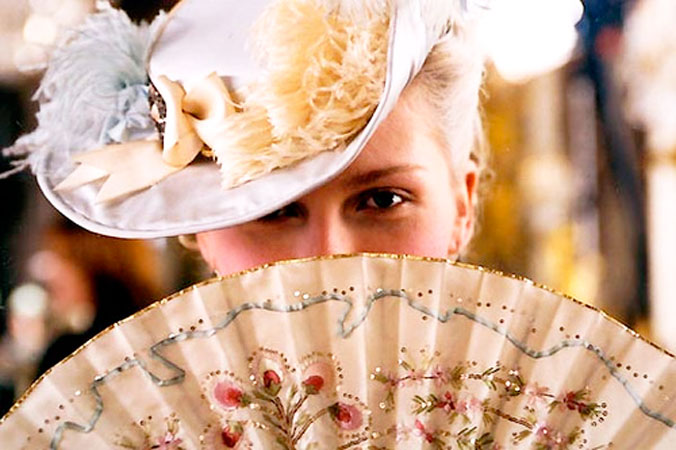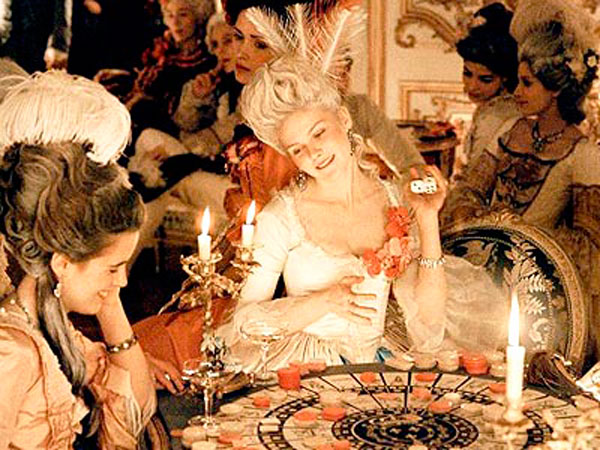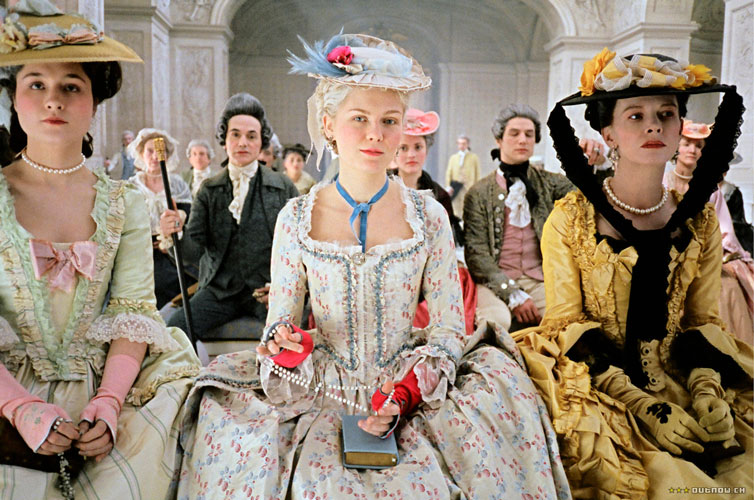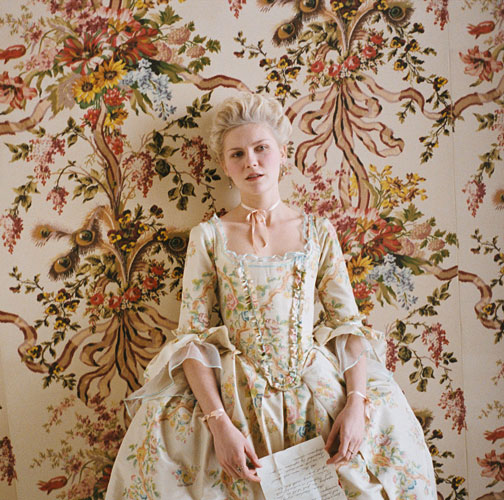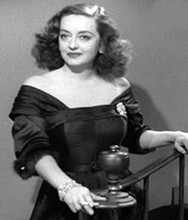
The Woman's Voice
Sofia Coppola and The Silent Woman
by Paulette Reynolds
June 13, 2016
First published in Bitch Flicks Online Film Magazine. *
June 13, 2016
First published in Bitch Flicks Online Film Magazine. *
The Silent Woman. You see her everywhere and yet she's not noticed at all. She exists between the spaces of Everything's Fine and I'm Okay. She's your mother, a sister, that next door neighbor and your best friend. Most of the time she's you, too. She often speaks in monosyllables and can also be quite the chatterbox...
When I first heard the phrase, The Silent Majority, I thought it referred to women. After all, the men I saw exercised power: In the boardrooms, between the sheets and at the dinner table - men spoke firmly, authoritatively and with absolute conviction that what they said carried all the weight of a solid gold bar at Fort Knox.
Of course my first frame of reference was visual and women in the real world matched what I saw in the movies. They had no real power and never spoke with any assertiveness, and when they did, they were quickly silenced with an exasperated look, a dismissive declaration, a well-placed joke or a baby.
Many films touch upon the theme of female isolation, but I remain fascinated with Sofia Coppola's three major cinematic creations that explore the world of The Silent Woman: The Virgin Suicides (1999), Lost in Translation (2003), and Marie-Antoinette (2006). Each film delves into this enigma, forming a multi-faceted frame of reference for a shared understanding.
Sofia Coppola's directorial career began with The Virgin Suicides. The family surname belongs to her father, film giant Francis Ford Coppola, known for his male-centric masterpieces The Godfather Epics and Apocalypse Now. But a popular Coppola project - Peggy Sue Got Married (1986) - would later serve to inspire her own seven-year creative streak.
Peggy Sue Got Married sticks out like an odd sock in Mr. Coppola's resume, a film about faded prom queen Peggy Sue (Kathleen Turner), who travels back in time to solve an identity crisis. Sofia played her younger sister and goes unnoticed, but the theme of isolation reverberates throughout, as Peggy Sue marvels at how things have changed, but still remain the same - for her, anyway.
Ms. Coppola's film trio borrows a few familiar chords from Peggy Sue for us to recognize: All three occur in different times (The Virgin Suicides, Marie-Antoinette) or cultural places (Lost in Translation, Marie-Antoinette), featuring naive young blond women (the five sisters, Charlotte and Marie-Antoinette), who communicate poorly with their inept male counterparts: a nerdy group of boys in Virgin Suicides, Charlotte's Lost in Translation workaholic husband, and Marie-Antoinette's clueless Boy King.
Yet The Silent Women, with their inability - or refusal, in the case of the virgins - to connect, diverges from Peggy Sue, whose adult life experiences enrich her inner voice, allowing her a measure of power. Their Nordic blondness also makes them more alluring than Peggy Sue, which is the gold standard of beauty that women are taught to admire from afar. The ironic connector allows them to drift through life, seemingly unaffected, when their fate demands that they adapt to society's demands or perish.
The Virgin Suicides, is the first in Sofia Coppola's trilogy about the strangled voice of Woman, narrated from the perspective of one admirer, whose subjectivity and biological entitlement flaws our gaze. The five Lisbon sisters, including Lux (played by Kirsten Dunst), form the mysterious inner circle of bored suburban girls, where their exotic surname separates them even more from their 1970s humdrum surroundings. And from the diseased tree looming ominously on their property, to their father's chats with plants and Mother Lisbon's terse commands at the dinner table, we suspect there will be no fairy tale ending.
The youngest daughter, Cecilia, succeeds in killing herself, and our collective dread for the remaining sisters is subdued as the parents try to relax their hold over the restless teenagers. This allows them some temporary freedom, but when Lux violates the curfew after a sexual tryst with Trip (Josh Harnett), everything goes into lockdown. Yet it hardly seems to matter to the girls, who lounge around their rooms as though they're enjoying an extended sleepover.
Lux begins to act out, having random sex on the roof, her behavior mirroring the experience with Trip on the night of the Homecoming Dance. As she stubbornly relives it for everyone to see, we become part of her guilt and sorrow, and like the boys watching, we can only make guesses in the dark. Lux's name, meaning 'light', hints that she is merely illuminating the scene for us, and whatever answer we arrive at will have to suffice.
The narrator, now a disillusioned adult, and his old neighborhood buddies continue trying to unravel the mystery that was the Lisbon girls, "We knew the girls were really women in disguise, that they understood love, and even death, and that our job was merely to create the noise that seemed to fascinate them." Triggered by hormones and too much free time, they spin endless fantasies about them, gleaned from personal belongings and the pop psychology of the times. Their perspective lulls them - and us - into a false arrogance that they've plumbed the depths to reveal their secrets. This deepens as we think they're communicating with them through shared music over the telephone. But the common link of music and feelings becomes something different for each group, as the girls are just marking time and the boys think they're actually connecting on a meaningful level.
A small pivotal scene occurs between Lux and her mother - whose first name we never know, played to perfection by Kathleen Turner. Lux complains, "I can't breath in here." Mrs. Lisbon's automatic response, "Lu, you are safe, in here", neatly shuts down any further attempts at communication. Her mother's desire to keep them safe only intensifies their estrangement from a society that they never wanted to inhabit anyway.
Eventually the girls follow their pioneering sister to a collective death. The men - including a remorseful Trip - are left behind, bewildered by too many questions and no real understanding of these sublime females.
Ms. Coppola's second film about female detachment is the commercially successful Lost in Translation (2003). It marked her first scripted venture, where she won an Academy Award for Best Original Screenplay and a Golden Globe for her efforts.
Lost in Translation follows the interweaving threads of a brief encounter set against the high-rise hustle and bustle of Tokyo, Japan. The male gaze is again emphasized: Bob (Bill Murray) is a famous actor and John (Giovanni Ribisi) is a celebrity photographer, signaling the dual nature in the preoccupation of looking. But Bob has reached the stage where he is tired of being looked at and John is too self-absorbed to really see. Inserted into this dynamic is Charlotte (Scarlett Johannson), John's neglected wife.
The beginning sees Bob and Charlotte attempting to relate to their surroundings, each other and their spouses. He sticks close to the hotel culture, surviving with a sour face and brittle humor, deflecting his wife's long-distant communications by sticking to a well-worn script of automatic replies and bland compliments. Charlotte is acutely aware that she is a stranger in a strange land, where her travels only reinforce the solitary nature of her existence. Coppola employs large landscapes - both cultural and historical - to emphasize how lost Woman is without a voice of her own, disconnected from the very society that layers her life with expectations and carefully placed parameters of behavior. This refrain is repeated in The Virgin Suicides, where most of the action is confined to the Lisbon home. Here, her travels leave her sad, as she and John dissolve into petty disagreements and estranged silences.
John goes on a photo shoot, leaving Charlotte and Bob to explore Toyko together. Bob, older and wiser, shares his knowledge about marriage with Charlotte. She complains about being 'stuck' in her life, reeling off her short list of failed careers. He encourages her to keep writing and here a seismic shift transforms Lost in Translation into an autobiographical post-it note for us: Sofia's earlier career choices and recent divorce are echoed in this scene, and the connection to her mentor-father now changes Bob into a paternal figure, who acts as an emotional buffer for Charlotte against the harsh realities buried within her life decisions.
As they say their goodbyes Bob whispers something into Charlotte's ear, which becomes the shared moment of intimacy that they've been avoiding. As Bob and Charlotte disengage and he disappears, she slowly walks towards us, and we're reminded of the film's beginning, where she came into view with her back facing us. Now, contentedly smiling to herself as the crowd swirls busily around her, we sense that she will survive and grow stronger.
Lost in Translation acts as the fulcrum in Sofia Coppola's trio, giving way to her third film, Marie-Antoinette (2006). Visually stunning, with opulent costumes and breath-taking views of the elegant 700-room Versailles Palace, Marie-Antoinette reunites us with Kirsten Dunst as the 14 year-old Austrian princess who would become Queen of France.
Marie-Antoinette, wrapped in a cocoon of wealth and privilege, begins a journey supremely ignorant of the world events that will affect her life, as she is handed off to the French government. At the Austrian-French border, she's forced to surrender all of her belongings for traditional French accessories, introducing Marie to the lengths she'll be expected to go for King and Country. Princess Marie arrives to a hostile court, where the courtiers refer to her as an 'apple strudel'. King Louis XV quickly marries off Marie to Prince Louis Auguste, since their sole function is to produce an heir for France. But Louis's disinterest, their sexual naiveté and Marie's inability to communicate produces nothing but gossip and blame, which gets directed at her, of course.
The princess will turn into an extravagant queen whose continuous spending left France stone broke - or so the story goes. Her husband, Louis XVI, (Jason Schwartzman) - just as clueless as Marie - contented himself with hunting and studying locks, while the government made political decisions that hastened the country's eventual downfall. But Sofia Coppola's film reveals a young girl who was never allowed to use her voice, sacrificed as a pawn by both Austria and France.
"Letting everyone down would be my greatest unhappiness," she confides to her Ambassador, but that seems to be Marie-Antoinette's secondary function. She spends her formative years at Versailles bewildered and overwhelmed, often tearfully breaking down behind closed doors. Her mother writes ultimatums, her brother counsels about sex, and her Ambassador wails about her refusal to engage in political intrigue. Her emotional isolation is further heightened by every personal activity, which serves as ritualized theatre for the court's entertainment.
Marie's spending sprees, gambling and hard partying become more extreme in her desperation to feel something more than boredom and inadequacy. Coppola's attention to Marie-Antoinette's clothing points at the language of fashion as a forceful communicator of power. And power statements for the monarchy were tucked into every inch of wig height, where prestige was judged by the width of a skirt and the suffocating amount of embellishment. Yet hidden within the satin and lace was a woman who was screaming to get out.
Marie-Antoinette's sad end marks our final film of Sofia Coppola's Silent Woman saga, and their collective search for an empowered voice. The Academy nominated Sofia Coppola as Best Director for Lost in Translation - only one of three women to be nominated by the Academy until 2009. Kathryn Bigelow then became the first female director to win an Oscar, and sadly, no other woman has been nominated for directing since. And while most of Hollywood's directors are still men, The Silent Majority is steadily raising her voice - on film projects, in the boardrooms, and globally - firmly, authoritatively and with absolute conviction.
*Paulette Reynolds. "Sofia Coppola and The Silent Woman," Bitch Flicks Magazine March 31, 2016. June 13, 2016
http://www.btchflcks.com/2016/03/sofia-coppola-and-the-silent-woman.html#.V14YcUty7eg
http://www.btchflcks.com/2016/03/sofia-coppola-and-the-silent-woman.html#.V14YcUty7eg
COPYRIGHT 2012/2017. Paulette Reynolds. All CineMata Movie Madness blog articles, reviews, faux interviews, commentary, and the Cine Mata character are under the sole ownership of Paulette Reynolds. All intellectual and creative rights reserved.
